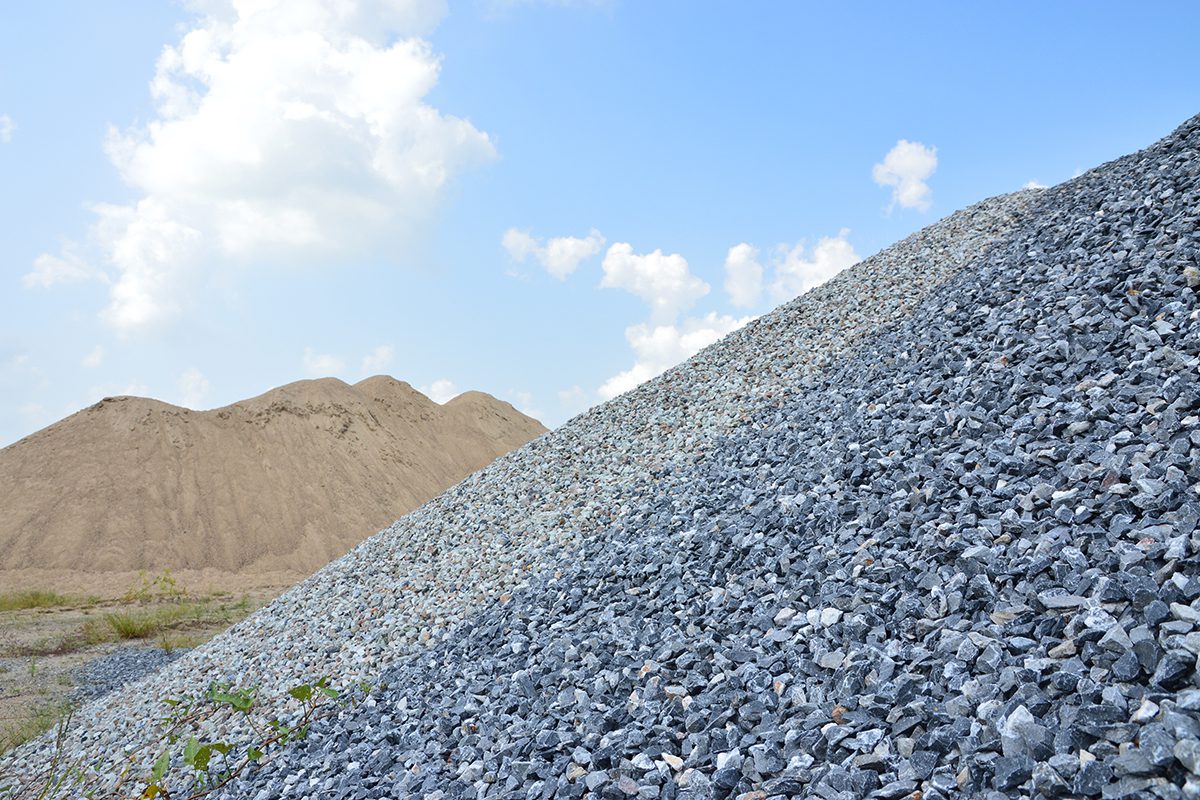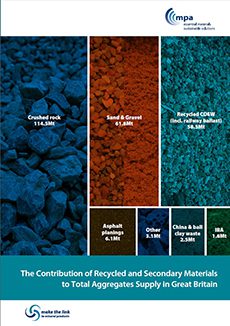
The Mineral Products Association (MPA) has launched a new briefing which makes the case that the aggregates industry is one of the UK’s recycling and circular economy success stories. It is titled ‘The Contribution of Recycled and Secondary Materials to Total Aggregates Supply in Great Britain’.
Over 70 million tonnes of materials from a range of sources are re-used in GB aggregates markets and 90% of these recycled materials are sourced from construction activity, following demolition work and road repairs.
While there is a welcome focus on reducing construction waste, construction in built-up areas and on brownfield sites invariably involves demolition and generates waste materials such as brick and concrete which are re-used in aggregates markets. Similarly, asphalt removed during road maintenance work is all re-used.
Other materials re-used in aggregates markets are sourced from iron and steel making, coal-fired power stations, incineration and china clay and slate extraction.
Government data and MPA research indicates that virtually all potentially re-usable materials are now used in the aggregates market. As such, the scope for increasing the use and share of recycled materials in aggregates markets is likely to be incremental and linked largely to the amount of construction and demolition work carried out in the future.
GB’s 29% market share of recycling in aggregates markets is double the European average recycling share of around 15%. The detailed information on recycling in aggregates markets in the new Briefing complements an earlier MPA Briefing ‘From Waste to Resources: a UK Mineral Products Industry success story’ which highlighted that the headline figure of 120 million tonnes of waste created by the construction industry annually creates a misleading impression of construction ‘waste’ not being in the ‘chain of utility’.

Commenting, Jerry McLaughlin, MPA’s Executive Director of Economics and Public Affairs stated:
“Treating waste materials as a resource is an essential element of the circular economy. Virtually all usable materials arising from construction and demolition work are re-used in the GB Aggregates market, together with materials arising from a range of other industrial and extraction processes. The use of these materials is not widely appreciated but it represents the largest volume of recycling taking place in Great Britain and the market share of recycling in the domestic aggregates market is twice the European average. This recycling performance helps to ensure the sustainable supply of aggregates into construction markets and is a notable circular economy success story.”
A copy of the report can be found here.







